Filter Resources by Tags
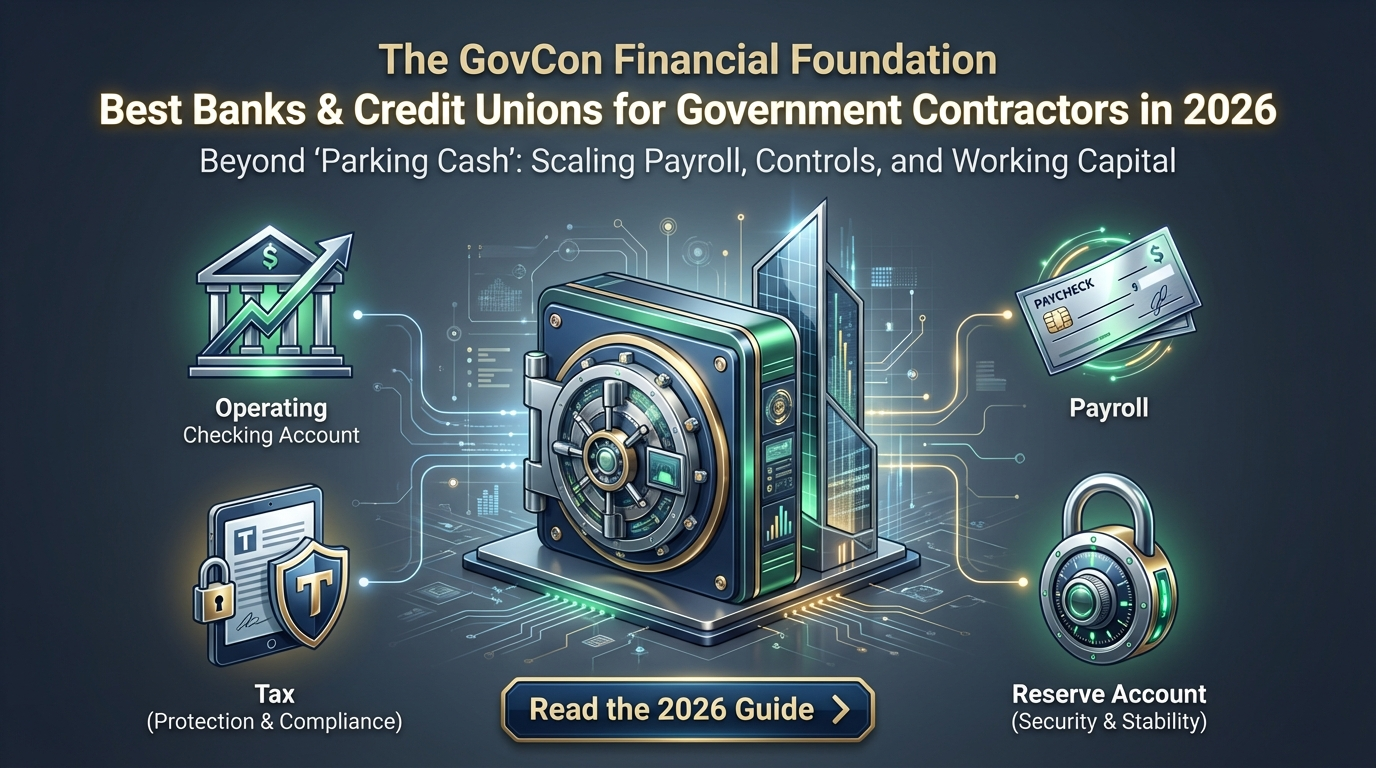
Best Banks and Credit Unions for Government Contractors in 2026
Government contractors do not just need a place to park cash. They need a banking partner that can handle payroll-heavy operations, long payment cycles, and the internal controls that come with multi-user finance teams. For service-based contractors in particular, the right bank or credit union can make payroll smoother, reduce fraud risk, improve visibility across contracts, and create a clear path to working capital financing.
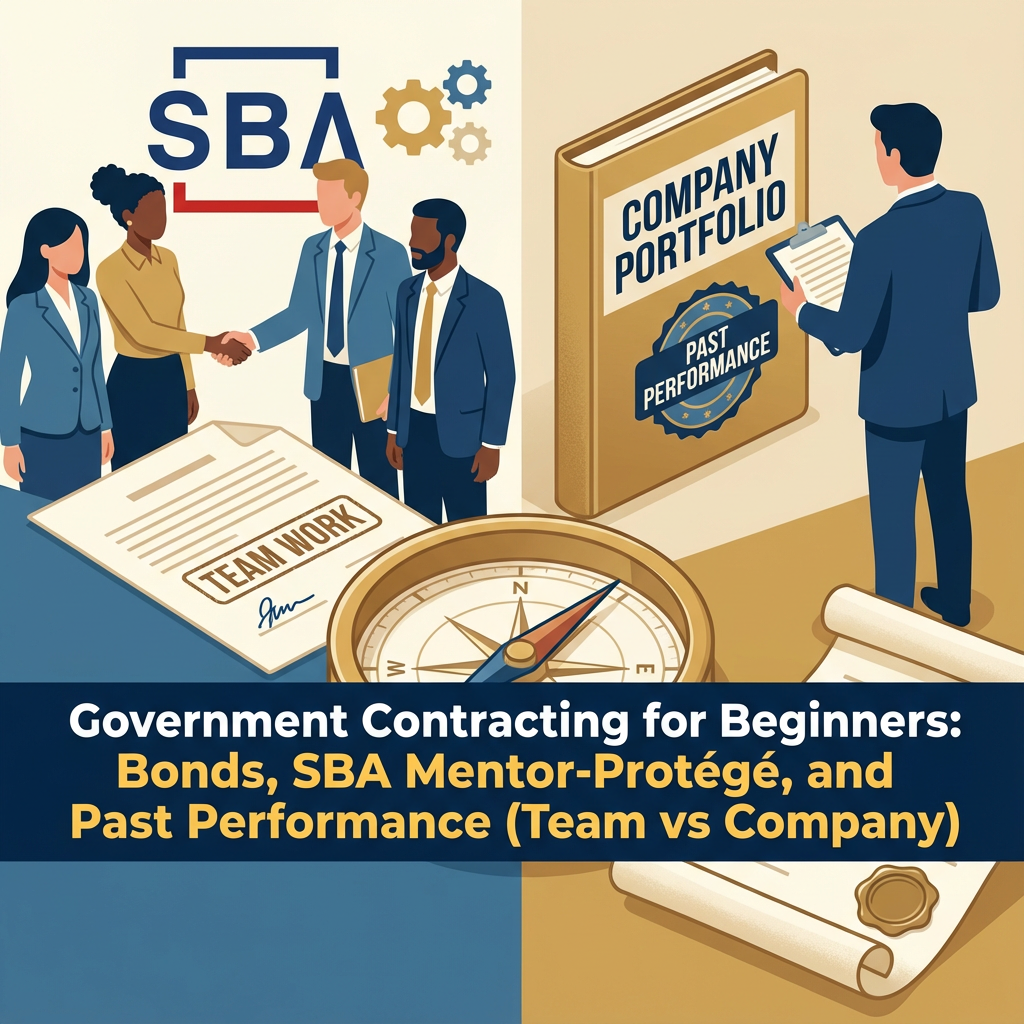
Government Contracting for Beginners: Bonds, SBA Mentor-Protégé, and Past Performance (Team vs Company)
If you are new to government contracting, three issues decide whether you can compete, win, and perform without getting eliminated on a technicality:

DISA Acquisition Accelerators Explained
DISA is changing how it buys. Not with a new portal or a shiny tool, but with a new expectation: faster source selection and faster awards through what it calls acquisition accelerators.

From Movement to Municipal Power: An Industry Analysis of Zohran Mamdani’s New York
Zohran Mamdani’s ascent to the New York City mayoralty marks one of the most consequential ideological shifts in the city’s governance since the fiscal crises and restructurings of the late 20th century. Yet the defining feature of his early post‑election period is not radical rupture, but institutional negotiation: the collision between an ambitious redistributive agenda and the realities of municipal finance, procurement law, labor markets, and state oversight.
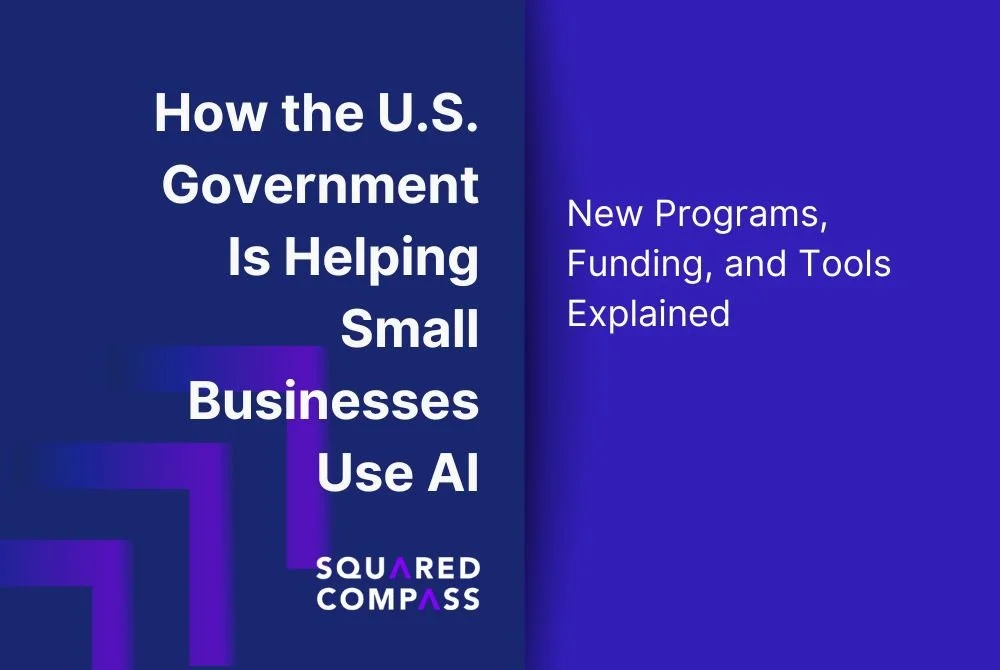
How the U.S. Government Is Helping Small Businesses Use AI: New Programs, Funding, and Tools Explained
Balanced against the broader national conversation about AI, the fears of bias, misinformation, job displacement, and runaway models, the small business agenda is strikingly optimistic.
The danger isn’t that small businesses will misuse AI. The danger is that they’ll be left behind by it. This is perhaps the most consequential shift of all.
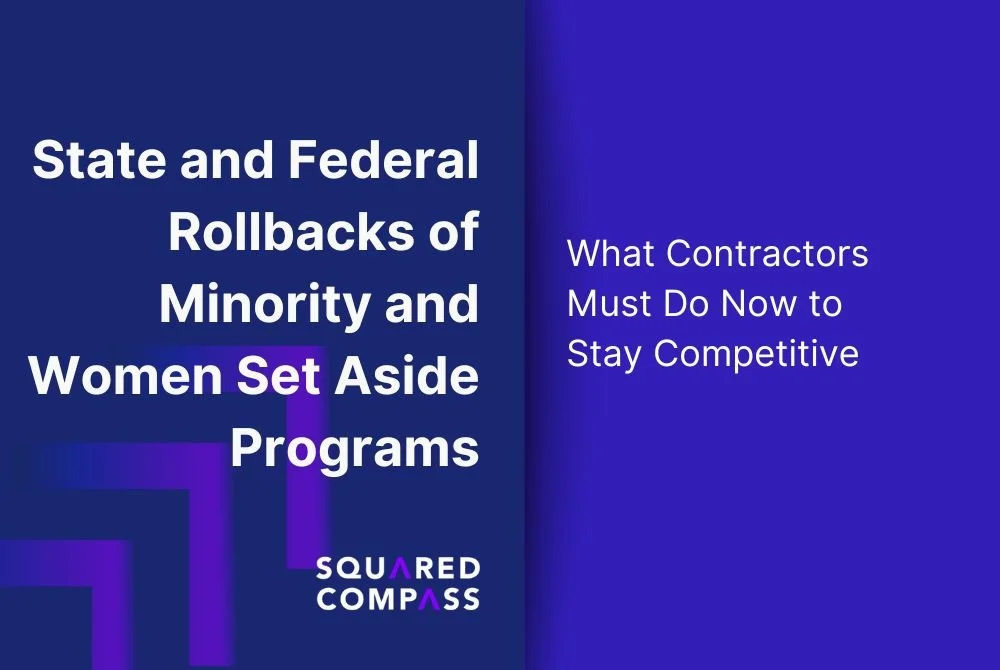
As courts, states, and federal agencies dismantle long-standing race- and gender-based set-aside programs, including but not limited to. 8(a), DBE, HUB, and M/WBE requirements, contractors face a major shift. This article explains why these programs are being changed or eliminated, the impact on government contracting, and the essential steps firms must take now to remain eligible, compliant, and competitive in a race and gender neutral procurement environment.”

CPARS Is About to Get a Major Overhaul, Here’s What That Means for Your Past Performance Score
If you’ve ever agonized over your CPARS narrative or leaned on a glowing “Exceptional” rating to win the next federal contract, get ready for a serious shift. Starting in 2026, CPARS as you know it is changing, and the new model flips the script entirely. For small businesses especially, this overhaul can either be a curse or a competitive advantage.
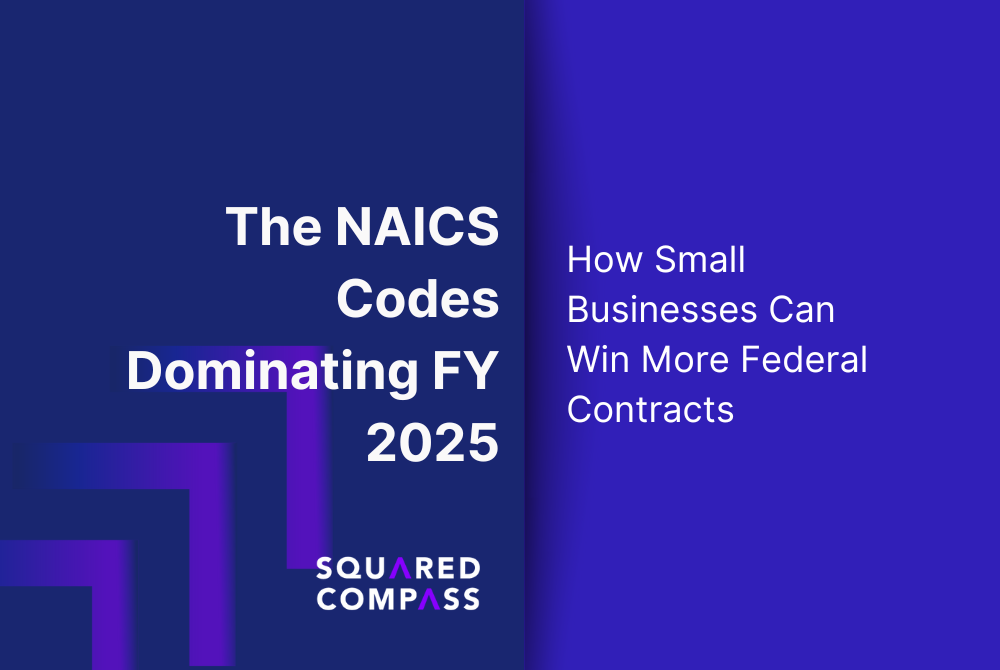
The NAICS Codes Dominating FY 2025: How Small Businesses Can Win More Federal Contracts
If you’re running a government contracting business, or trying to break into the federal space, understanding which NAICS codes are getting the most attention from federal buyers isn’t trivia. It’s strategy. The FY 2025 data (through 09/30/2025) shows clear patterns about where small-business dollars are actually landing, and if you want to grow, you need to align with those signals.

The Shutdown’s (Almost) Over, Now What? Your 3-Day Email Plan for Federal Contractors
If you’re a small or mid-sized business with active government contracts, the first 72 hours after a federal shutdown ends are not the time to play catch-up. You need to move fast, re-establish momentum, and protect your performance record, especially if you’re in the middle of 8a contracts, working toward women business certification, or navigating the SBA 8a certification process.

Senate Breaks the Shutdown Stalemate: Inside the Deal That Could Reopen the Government
On a 60 to 40 vote, senators advanced a plan to reopen the government and keep it running on last year’s spending levels until January 30, 2026. 7 members of the Senate Democratic Caucus and 1 Independent crossed over to help pass the procedural hurdle.

The Pentagon Just Rewrote the Rules: What Defense Contractors Need to Know Now
The Department of Defense just dropped a bombshell for anyone doing business with the Pentagon: a complete overhaul of its acquisition playbook. If you’re a small or mid-sized contractor eyeing defense work, or already in the thick of it, this changes the game. Faster timelines, fewer layers of review, and a much bigger push to work with commercial and non-traditional vendors. Let’s break down what’s happening, why it matters, and how smart companies should respond.

Why the ‘Set-Aside’ Strategy That Worked in 2023 Won’t Cut It in FY 2025
If your small business landed contracts in 2023 by chasing easy set-asides, here’s a wake-up call for FY 2025: that playbook is expired. What used to be a reliable strategy, waiting for a small-business set-aside in your contractor NAICS code and jumping on it, isn’t going to yield the same results this year. The rules have changed, agency behavior has shifted, and federal procurement is evolving in ways that demand a new approach. Let’s break down what’s changed, why it matters, and what smart businesses should be doing now.

How AI Is Quietly Reshaping Federal Contracts – And How You Can Get In Before It’s Too Late
Artificial intelligence isn’t coming to federal contracting, it’s already here. Agencies are using it to analyze data, manage supply chains, speed up service delivery, and even evaluate vendor performance. And while the headlines may focus on billion-dollar defense projects or flashy tech demos, the truth is that AI is opening up new doors for small and mid-sized businesses across the federal landscape.

Shutdown-Proof Your Federal Contract: How Smart Contractors Stay Paid, Protected, and Prepared
If you're a small business with federal contracts, you’re already familiar with the anxiety that comes with a government shutdown. Payments get delayed. CORs disappear. Confusion reigns. But here’s the thing, shutdowns don’t have to derail your performance, your cash flow, or your CPARS rating. The latest 2025 guide on Protecting Federal Contracts During a Government Shutdown lays out a clear playbook for how to protect your work, your people, and your pipeline. And if you’re in the 8a contracts services world, or eyeing disabled veteran government contracts, you need to be especially sharp right now.

When State Programs Stall, Shift to Local: A Smart Pivot for SMB GovCons
If your federal or state contracting pipeline has slowed to a crawl lately, you're not alone. Between the ongoing federal shutdown and Texas’s surprise freeze of the HUB program, small businesses chasing set-asides and state-funded work are finding themselves stuck in limbo. But here’s the good news: procurement hasn’t stopped, it’s just shifted closer to home.
Local governments and school districts still need IT support, maintenance crews, classroom equipment, and more. And unlike paused state programs or federally delayed payments, these buyers tend to move fast and pay reliably. Let’s break down why this pivot matters, how to do it, and what smart GovCons are doing to stay cash-flow positive during these freezes.

Texas Freezes HUB Certifications, What It Means for Small Businesses in Government Contracting
In a move that’s already sending shockwaves through the small business community, the Texas Comptroller has frozen all new and renewed certifications under the Historically Underutilized Business (HUB) program. That means no new HUB certifications will be issued, and expiring ones won’t be renewed, effectively putting the brakes on one of the largest state-level programs supporting minority-, women-, and disabled veteran–owned businesses in public procurement.

CMMC Level 1: What Small DoD Contractors Need to Know Right Now
If you’re a small business looking to win or keep Department of Defense contracts, the new Cybersecurity Maturity Model Certification (CMMC) Level 1 rules are no longer just a future requirement, they’re here. As of November 10, 2025, the final DFARS rule is in effect, and that means even the simplest contracts involving Federal Contract Information (FCI) now require compliance.

When the Grocery Money Stops: What a One Month Halt to SNAP and WIC Means
For a program that quietly moves $8 billion a month through grocery lanes, turning off SNAP (and wobbling WIC) is not a rounding error, it’s a shock you can plot on a GDP chart and feel in a checkout line.

Shutdown Survival: Build a 14-Day Cash-Flow Plan (That Actually Works)
Another shutdown. Another round of unpaid invoices, paused projects, and silence from contracting officers. If you’re a small or mid-sized government contractor, you don’t have time to wait and hope. You need a plan, now.
This post breaks down exactly how to build a 14-day cash-flow survival strategy to weather a federal funding freeze. It’s not theory. It’s built for real-world survival, so you can keep the lights on, protect your people, and come out the other side stronger.

Shutdown Pain Gets Worse: What the Backlog Means for SMB Government Contractors
If you thought the shutdown freeze was bad, wait until you hear what’s happening on the back end. A wave of delayed payments, frozen funds, and radio silence from contracting officers is pushing small and mid-sized federal contractors to the financial brink. And here’s the kicker: even when the shutdown ends, the chaos isn’t over. The invoice backlog is already massive, and it’s about to get a lot worse.
